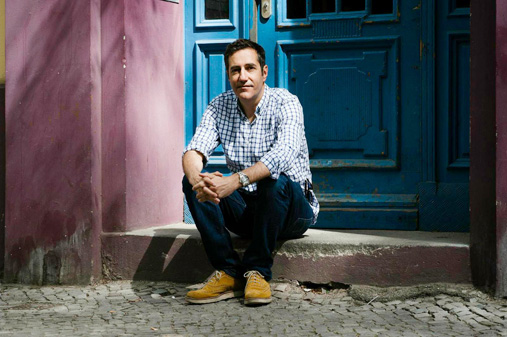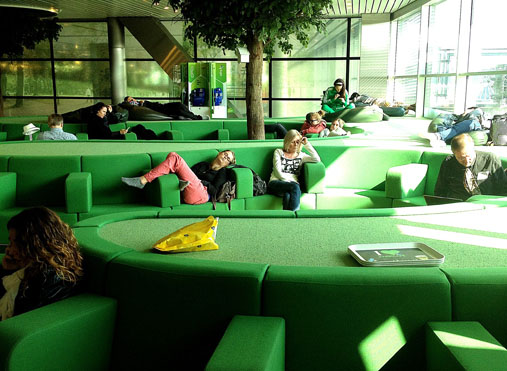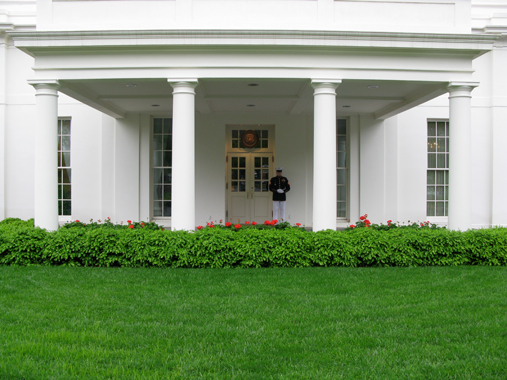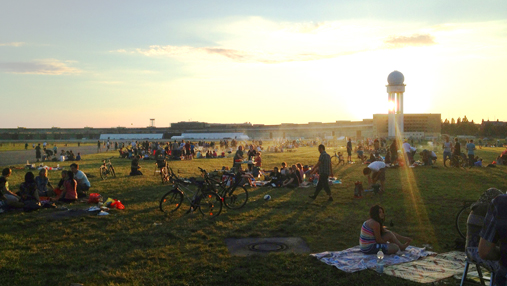Global village
The images on the TV screen were grainy and out of focus. The color was off and the scratchy sound drowned out the cries of joy. On the day everyone was watching the Berlin Wall come falling down, I was still a law student in the small Spanish town of León and journalism had not yet come into my life. The wall that had separated the world for so many years was torn down and the “global village” concept emerged out of the rubble. Back then, I spent most of my time with my head buried in law books and didn’t realize how much this idea would shape my future. Nor was I aware of how this fantastic adventure – a life without borders – would cause injury and leave behind scars: The wounds of uprooting and nostalgia never heal.

The euphoria that came at the end of the Cold War changed the course of my life. A law degree promised such a secure, predestined career. And this made me forget about the opportunities opening up in a smaller, more accessible world. Journalism was the best choice for discovering and reporting on the new world out there. I embarked on a journey with unpredictable destinations and I have used these places to create the segment of life I have lived up until now. I spent some time in Wisconsin, a few years in Paris, a couple more in Washington, in Madrid and now in Berlin. Sometimes I wonder where this feeling of restlessness, this eagerness to discover new worlds comes from.

There is something magical about change. For example, the sensations that come with each new country. It starts with simple things, like the color of the airports. The Madrid airport is brown. In the United States, visitors are welcomed by soft carpets. In Zurich, everything is made of glass. In Amsterdam the airport is green and full of plants. Airports are the beginning of a study about the different types of smiles, the fragrances of marketplaces, the architecture of the grocery stores with their local products, the many ways to enjoy summer sun in different parts of the world. One discovers and absorbs these situations and gestures that evoke the same feeling a child has when he opens a present. One might think that there’s no need to lead a nomadic life to be aware of these things because a week’s vacation in New York is enough to comprehend all of the feelings this city of skyscrapers has to offer. But by far, this isn’t the same. A tourist collects postcards. A native is part of the image portrayed on the card. You have to be on the inside to enjoy the fine details. You have to dress in the same colors as the people around you, speak their language, have the same daily routine, and do the same things on weekends.

And when the novelty fades, something even better comes along. This is when the real adventurer emerges. Each phase of adapting to a new environment is like a training session for a young Jedi. More experience, more wisdom and more understanding of all that is different. This is one of the best lessons a traveler can learn. There are many worlds, each one is different, but they are all worthwhile.

I have been lucky enough to live in beautiful cities. No river is nicer than the Seine where it flows past the Notre Dame Cathedral and winds its way through Paris. No cemetery is more beautiful or somber than the one in Arlington. The parks in New York and Berlin are unique universes. All of these scenarios are part of my life and firmly stored in my memory – like luxurious souvenirs.

But even during the best times in far-off places, there is always something missing. I never really understood where we plant our roots, whether it’s in the blood, the brain, in our childhood, or in the family. Sometimes nostalgia is awakened by a certain smell, a sound, or a street scene. It’s always there, like a stubborn companion, waiting to turn our attention to what we really are. It’s the price we pay as the new generation of “global workers.”

It’s true that technology has changed everything. Communication via social networks and connectivity ease the feeling of being uprooted. But this feeling never really goes away. Maybe that’s the price we pay to explore the world. Maybe it’s a signal that shows us travelers that, when the time has come, we will one day return to our roots.
Carlos de Vega. Fifteen year career as a journalist. Member of the CNN+ founding team (1999), reporter and political correspondent, program director, special envoy to Kosovo and Iraq. Appointed U.S. Bureau Chief in 2004, reported on Hurricane Katrina, joined Obama and McCain on the campaign trail. Appointed Communications Manager, PRISA TV (January 2011). Relocated to Berlin, currently senior correspondent, news anchor and talk show host for Deutsche Welle.


